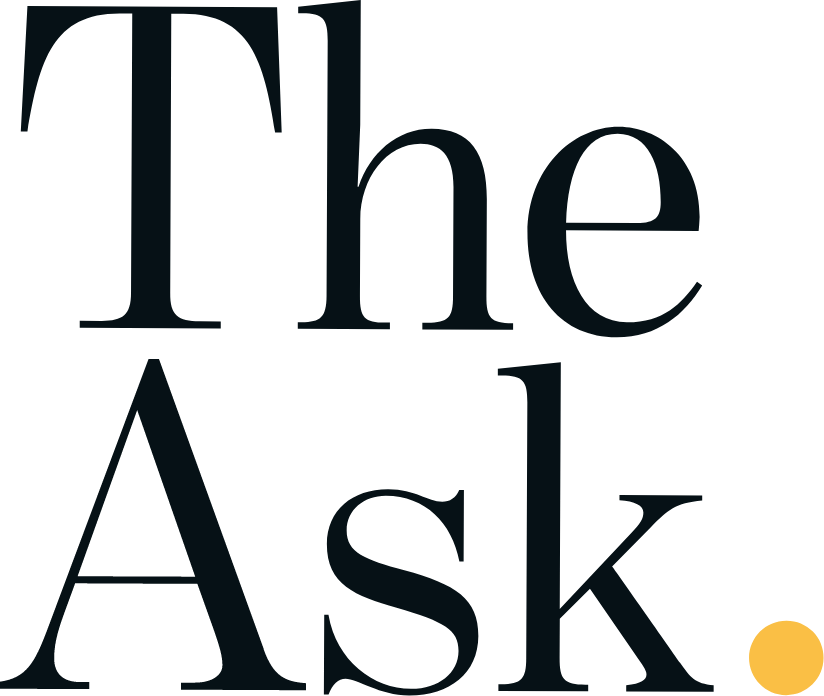What happens when your initial idea collides with the market.
Discussing strategy with Alex Smith, Founder of Basic Arts. Taking business advice from Dolly Parton and why doing 'strategy' is finding out that your initial idea is wrong.
My last blog post discussed how your personal goals should influence your business strategy. In this article, we’re exploring more business strategy, ft. Alex Smith, a strategy consultant and founder of Basic Arts.
Oh yes, we’ve brought in the grown ups.
Before we get there I wanted to get something straight.
There are many buzz words in the business-building space and we don’t want to waste too much time keeping up with them. If you’re spending more time sat scratching your head about the difference between vision, mission, strategy on Merriam Webster’s dictionary then something has gone terribly wrong.
So let me clarify at least my personal definitions before we go any further! PS I believe you should figure out the below in more or less this order:
Business idea = initial idea that prompts your businessMission = The problem you are trying to solve through this businessVision = The end destination and how this would look if it all pans out as you hopeStrategy = How you will get there (aka the tactics and approach)Want more help?
Why not dowload The Ask's free vision-into-action worksheet to get clear on your vision mission and strategy today. This simple but effective prompt will serve to guide you to getting your businesses vision out of your head and into the world.
Not to state the obvious but…
Before you have a strategy you need an idea.
As far as I see it, there are two main ways that new business ideas get generated:
You have experience doing something that you can create a business around (i.e. existing skills, contacts and expertise.)
This is the case for many creators, freelancers and services providers.You have found a problem, to which you have a solution.
More often than not this is true of product and platform based business models, but not exclusively.
Regardless of whether your idea is more type 1 or type 2, what you’ll find is that until you actually begin building your business, you don’t know how the idea will evolve over time.
An idea begins as a hypothesis; you may be right about your idea but you may not. You have to show up with your idea its all of its vulnerability to expose it to the world, and then see what happens. See ideas as experiments that need further investigation. Only when brought to life can you know whether they are robust, and viable.
I met someone recently who has been running financial models on Excel for her idea to test commercial viability. She was stuck though. That’s because until you have customers who are actually giving you their money, these numbers are pure speculation. You may seek certainty in such exercises, maybe your version is refining a logo or website but that is sticking to your comfort zone and not doing the real work.
To quote Alex Smith of Basic Arts:
“Every business is a negotiation between what you want to do and what the market wants”
So, it’s time to hear from Alex about what he means by this in another founder Q&A.
Alex Smith’s strategy consultancy ‘makes companies without competitors’
I really enjoyed speaking to Alex who has a unique take on the world. Find more of his work in the links below, and explore the Q&A in this video or transcript to learn the tricks of the trade!
Can you tell us more about the work that you do?
I advise businesses on their strategy, which is a flabby word but it’s about how to carve out an owned defensible, non-competitive space (whatever category you’re in). So that the direction for the whole company - from brand, product to distribution and how they are joined up - are aligned and coherent.
At what point would a business decide to work with you?
Often after initial growth, say 5-6 years of traction from the point their initial idea has taken off. They they may be doing well but don’t know why that is or things might have gone in a different direction than they’d anticipated initially. Now the business is no longer in an experimental phase but they have gathered enough information about themselves, it’s time to stop and consolidate learnings.
So that they can say “what we [as a business] are all about it X” and begin doing it deliberately.
Even businesses that have been going for 20—30 years don’t always know what they are doing long term as they never actually develop a fully coherent strategy. You can become very big and very successful without any strategy at all.
Let’s talk about your own business, Basic Arts, how did you arrive at this as your thing?
The original idea began having been a Strategy Director in marketing and creative agencies. The job of these kinds of agencies is to ‘put lipstick on the pig’. A business would ask the agency to help them to look good, or be better understood by their customers.
So the agency would find tricks to present a business (which might be quite generic, boring or confusing) in a light which makes people want to buy from them.
It’s a lot of smoke and mirrors.
That’s the fun of working in an agency; finding clever insightful creative ways to sell something which can’t really sell itself.
But I noticed that every now and again, about 5% of the time, a business would come along which is so intrinsically interesting and has a strong position in its market already. It’s charismatic and does something valuable that needs no trickery or creativity to sell it. So in this scenario the agency becomes more of a messenger boy there for execution because all the thinking has already been done in the business itself.
For the agency this project is much less interesting but for the business owner, it is that kind of business you want to be running.
I had the idea to help businesses become like that kind of business; one which does something fundamentally worthwhile. Not just putting lipstick on the pig.
At the time of starting out I wanted to have a bigger mission behind my business. I was committed to the idea that if a business does interesting things in how it operates then the business becomes its own advertisement.
For example, Patagonia have unlimited free repairs, which is an embedded characteristic. This is interesting and creative, it’s a ‘talk-able factor’ which serves the same role as an ad would.
Most businesses have interesting ads but are dull.
So my mission became: Make interesting companies not interesting advertising.
The big picture of this would look like all money being spend on ads and media spend being turned back in on the business system itself; to make business intrinsically more interesting.
This made for a grandiose idea and interesting thing to talk about.
However, practicing what I preach I found that my initial prototype idea (like many businesses) is a fundamentally pretty stupid idea.
But you need something to get you in the game.
It evolves over time and two years later you’ll look and find you created something different than what you intended to create.
What were some of the early signs to you that your initial vision was not fully attainable?
The first is that this type of project can only be done at founder or CEO level, not the brand or marketing department.
So because I was talking in the language of advertising it had brought me in at marketing department level. With services businesses you can’t swim upstream, you can only swim downstream so I learnt that you need to find a way of talking about things in the language of CEOs.
I cut all references to marketing/advertising/brand and I realised that what I was selling on a fundamental level was the strategy and it completely changed my language.
The line now is ‘make companies without competitors’.
Whilst the language shifted its arguably about doing the exact same thing. A reframing of your core product is the essence of most strategic focused projects.
Did this reframe feel like you were climbing down from your initial why?
It was gentle enough not to notice, I just reflected that I’d created something more pragmatic and less idealistic than the initial thing I had in mind.
Every business is a negotiation between what you want to do and what the market wants.
The first idea people set out with is more directed in what they want to do; an idealised perfect vision of how they want things to be but that basically never works. It hasn’t been beaten around or stress-tested by a market response yet. So where it ends up is always going to be more grounded and realistic than what the founder had initially imagined.
Founders start out with more idealistic visions all the time.
Although it seems like a climb down it isn’t really, because it involves evolving in the direction of what the world actually wants and needs (and not your own narcissistic self serving idea of what would look really cool, as it was in my case).
Where I’ve ended up is less creative and sexy than where I began but if you’re mindful you can still end up somewhere more interesting than 99% of other businesses.
Any feelings of regret or of ‘sacrificing your principles’ are outweighed by the fact you have gone through the unpleasant self-discovery process and settled somewhere that works. If I’d known how long it would take me to get to where I am now (5-6 years) I’d never have done it! What you would imagine would happen is always so much quicker than the reality!
How do work on projects and clients that stay aligned with your mission?
Because I started out by going part time at work (turning the volume down on that and up on my business) I was fortunate that I never did something just for the money so was able to do only the purest articulation of what I do.
Obviously if I had quit my job wholesale that wouldn’t have been the case and there may have been some short term compromise. But I’ve only ever done projects that are exactly what I’d envisaged and the process that I’d design in my head.
And for the most part what I do is self selecting. If you create a business which is idiosyncratic and has a certain style and vibe then it will attract like for like. I rarely get prospects who are not my type of brand and when I do they unlikely convert.
A sure sign of coherence and clarity in your own brand!
Any final words of wisdom for balancing the tension between your own vision and the needs of the market?
There is no better advice than from Dolly Parton who says “Find out who you are and do it on purpose”. That quote is a better piece of strategic advice than anything I’ve read in a business book.
Where can people follow your work or work with you?
Website: basicarts.org | Newsletter: basicarts.org/newsletter
With the newsletter when you sign up you get an eight day mini course on strategic thinking for founders for free. [Note from Ellen, it’s excellent, sign up].
More advice on building a business in line with your why, and taking on market feedback:
The idea that you pursue should map to who you are as a founder. Try this post on Product-founder fit from The Ask archives and this worksheet from Taylor Pearson is an interesting way to answer questions like “Do you like what you would be doing on a day to day basis to grow the business?”
Strategy work keeps your business alive. From Alex himself: How successful brands die. Strategy isn’t a pre-requisite to business growth (many businesses growth without a real strategy) but it can be a pre-requisite to surviving. Case in point: Clubhouse grew exponentially but is now dead largely because its strategy fell down. More posts from Alex’s newsletter archives can be found here.
Do you have wrong strategy or fuzzy strategy syndrome in your business? Learn the definitions and detect between them with this piece from strategy pro Nathan Baschez on the key reasons businesses plateau.
Want to clarify your strategy and fast track the process?
1-1 Coaching: Is designed to get you a solid plan and strategy and step into your role confidently as founder/CEO. Book a consultation for a chance to explore your goals over a 45 min call to explore. Slots limited for 2021.
A community for startup ceos and cofounders: You’re the average of the five people you spend the most time with. Meet other founders for intimate peer-learning circles. Apply here and learn more.







